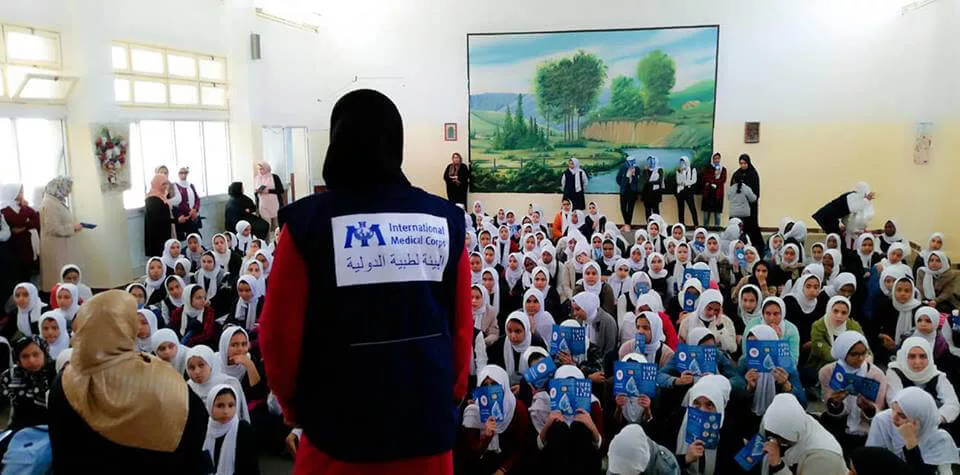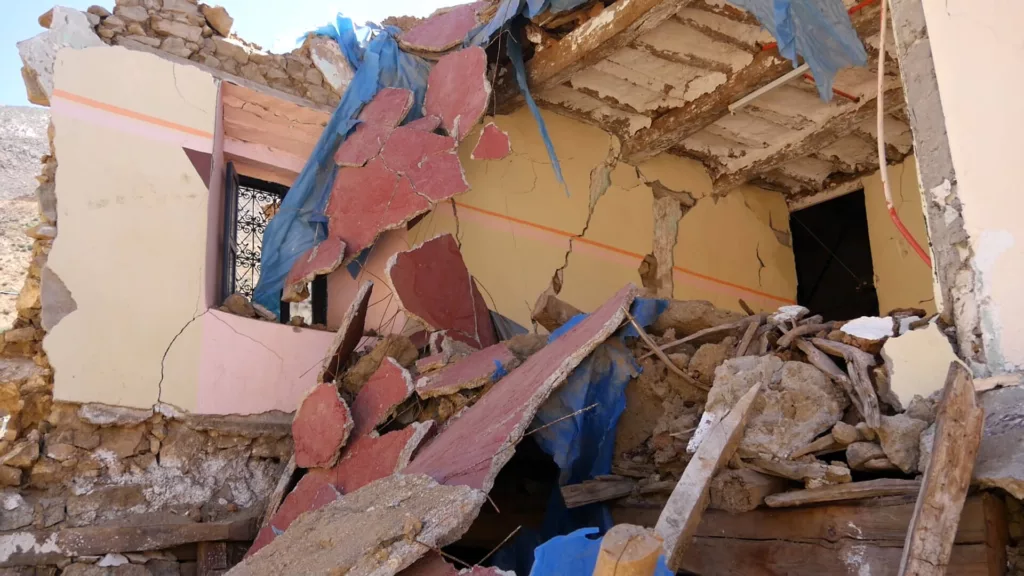In September 2023, back-to-back natural disasters struck Morocco and Libya, causing widespread destruction and loss of life. International Medical Corps responded in both countries within 72 hours.
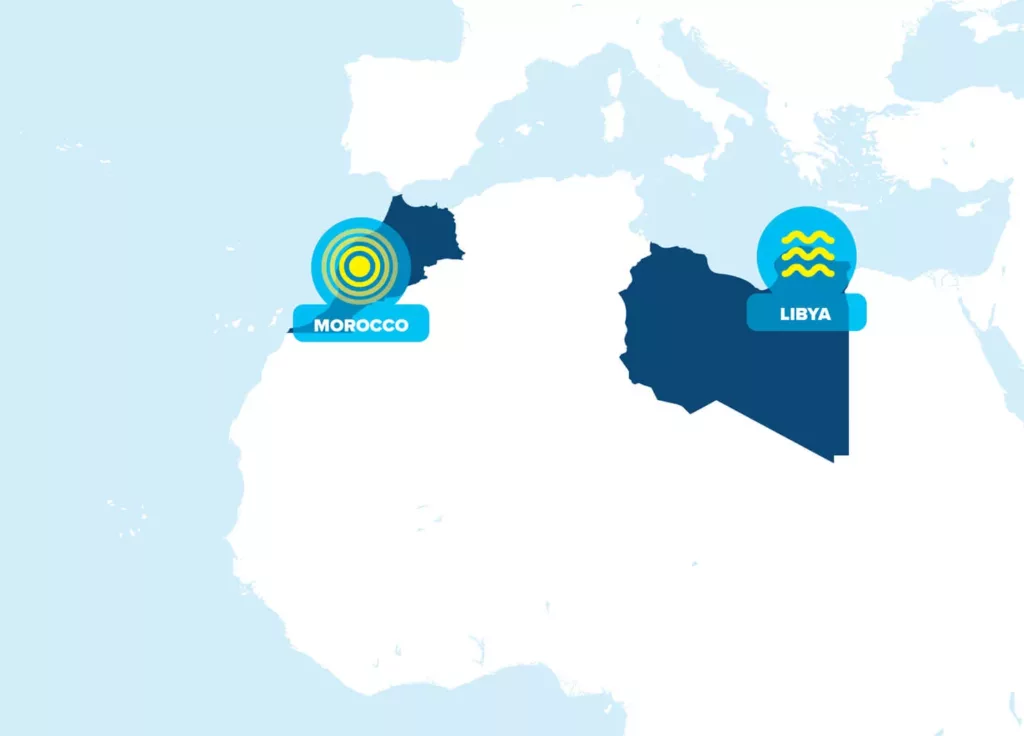
Our ImpactThanks to our supporters, we:
|
Our Response in Morocco
On September 8, a 6.8-magnitude earthquake struck central Morocco, about 45 miles southwest of Marrakech.
Emergency Overview
- Nearly 3,000 confirmed deaths
- More than 5,600 people injured
- More than 500,000 people displaced
- 60,000 homes damaged, with 19,000 of those completely destroyed
The earthquake was the most powerful Morocco had experienced in more than a century, and its deadliest since 1960.
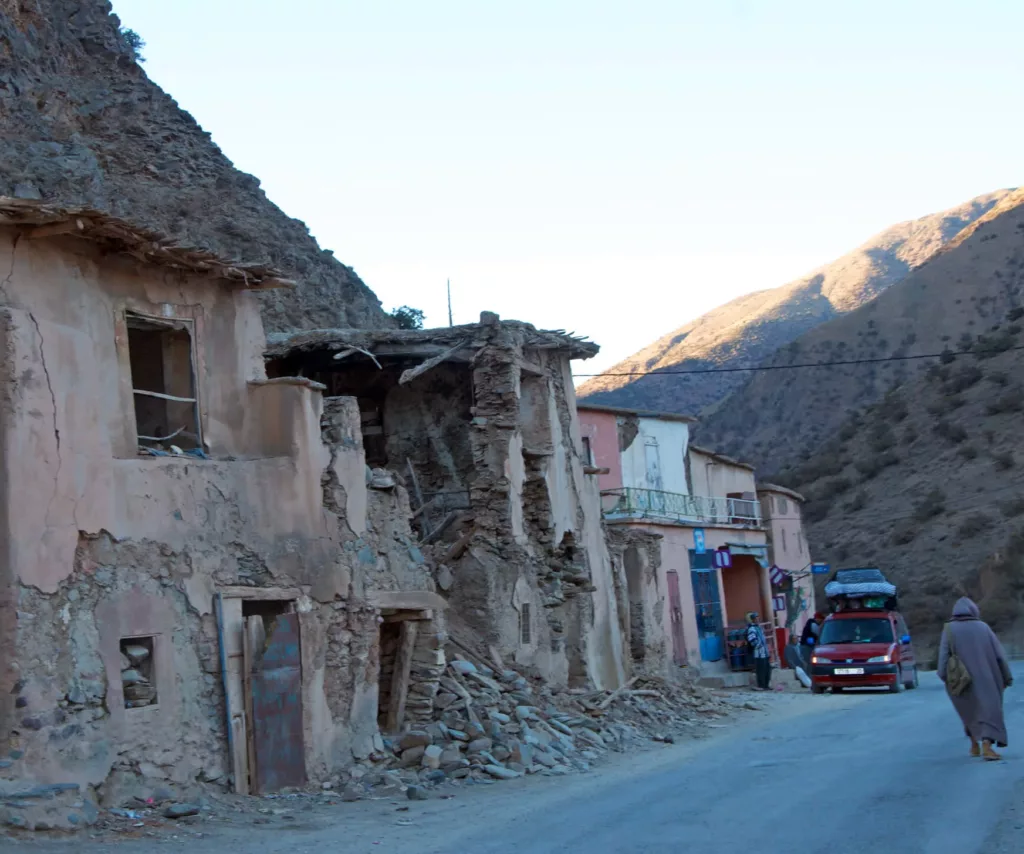
Health
In response to the earthquake, International Medical Corps partnered with the Moroccan Association of Solidarity and Development (AMSED) and Maroc Solidarité Médico-Sociale (MS2) to reach 26,225 people. Together we have:
- deployed two MMUs to deliver health services and distribute essential supplies;
- provided 14,808 health and 1,352 MHPSS consultations;
- referred 1,661 patients to higher levels of care at Taroudant and Tahnaout Health Center;
- procured 76,043 items of medicines, medical equipment and supplies to support our MMUs;
- conducted health and hygiene promotion awareness sessions reaching 11,681 people; and
- distributed 500 hot meals and ready-to-eat food items to 200 people.
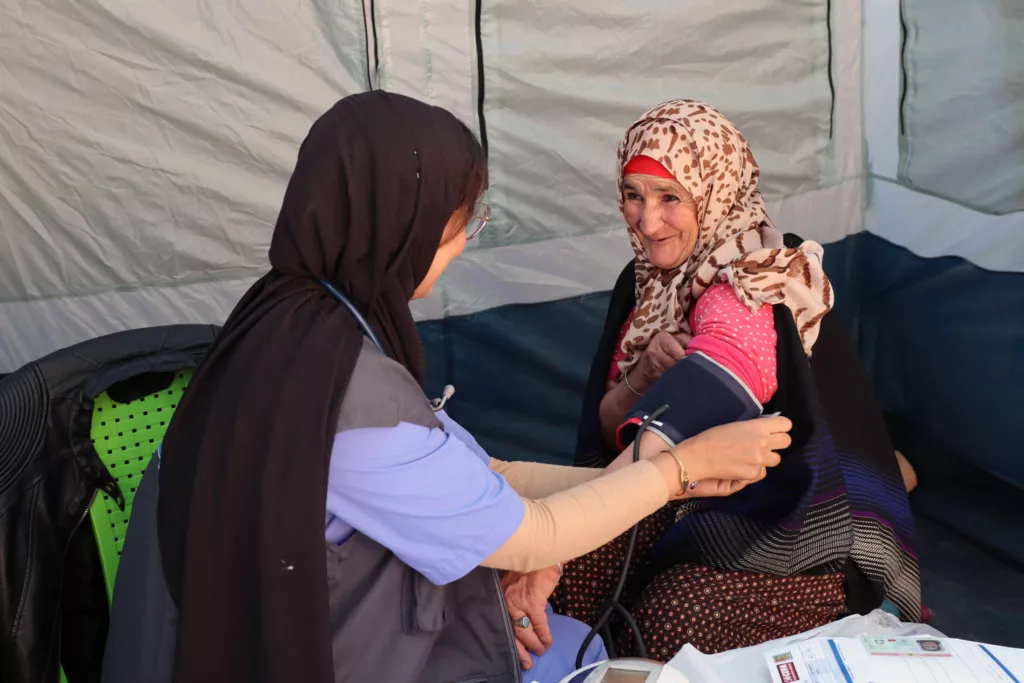
Winterization
Though Morocco is known for its mild winters, in the High Atlas Mountains where the earthquake struck, winters bring below-freezing temperatures, heavy rain and even snow. We partnered with Action for Humanity (AFH), the European Committee for Education and Agriculture (CEFA) and AMSED to ensure that earthquake survivors still living in temporary shelters and settlements were prepared for the winter season. International Medical Corps:
- prepared and distributed 120 household winterization kits, benefitting 720 people;
- distributed 1,714 winterization items, including blankets, mattresses, winterized tents, power generators and community kitchen kits to households in need; and
- procured and distributed 1,701 family hygiene kits, which supported 10,206 people for one month.
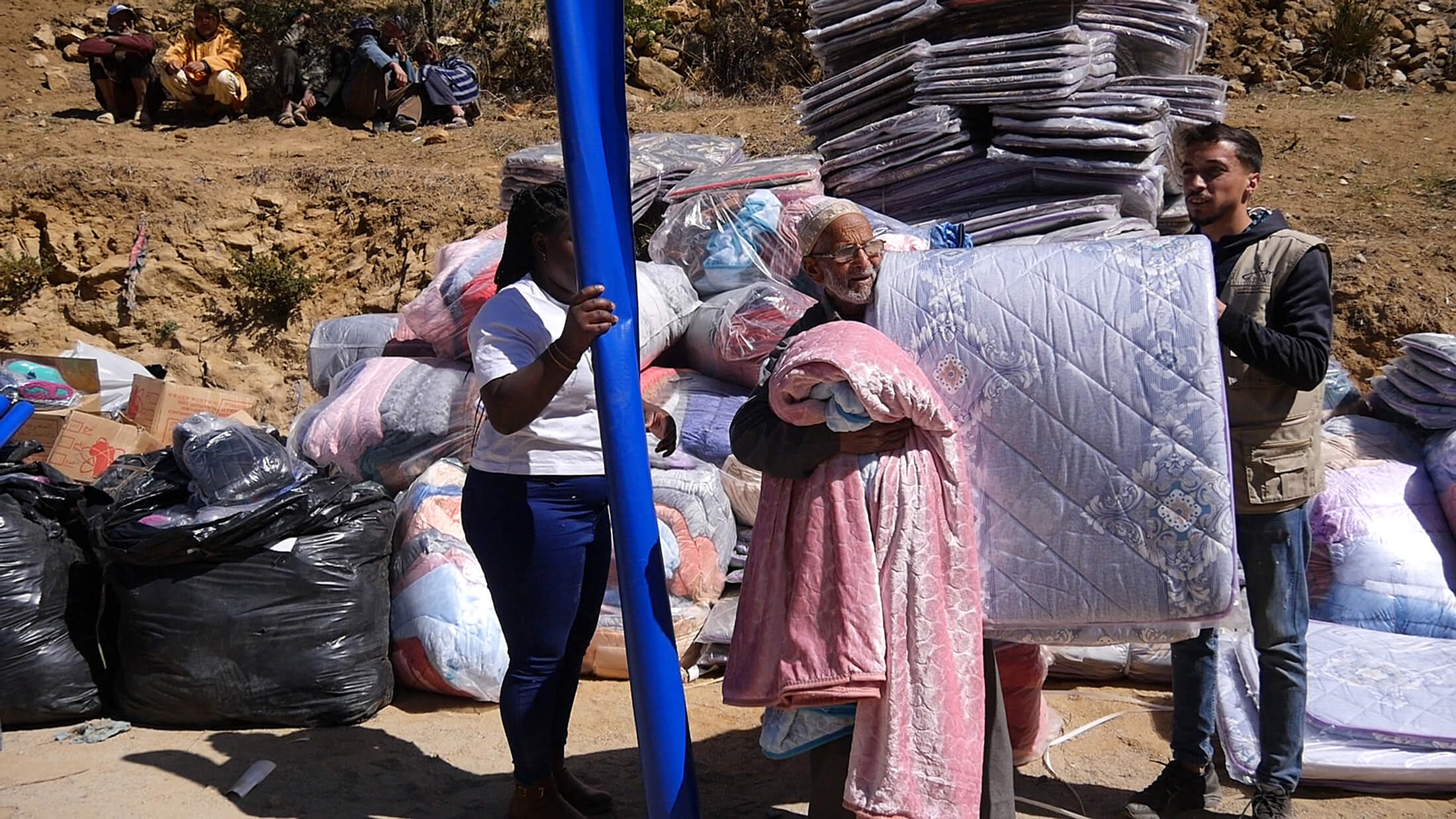
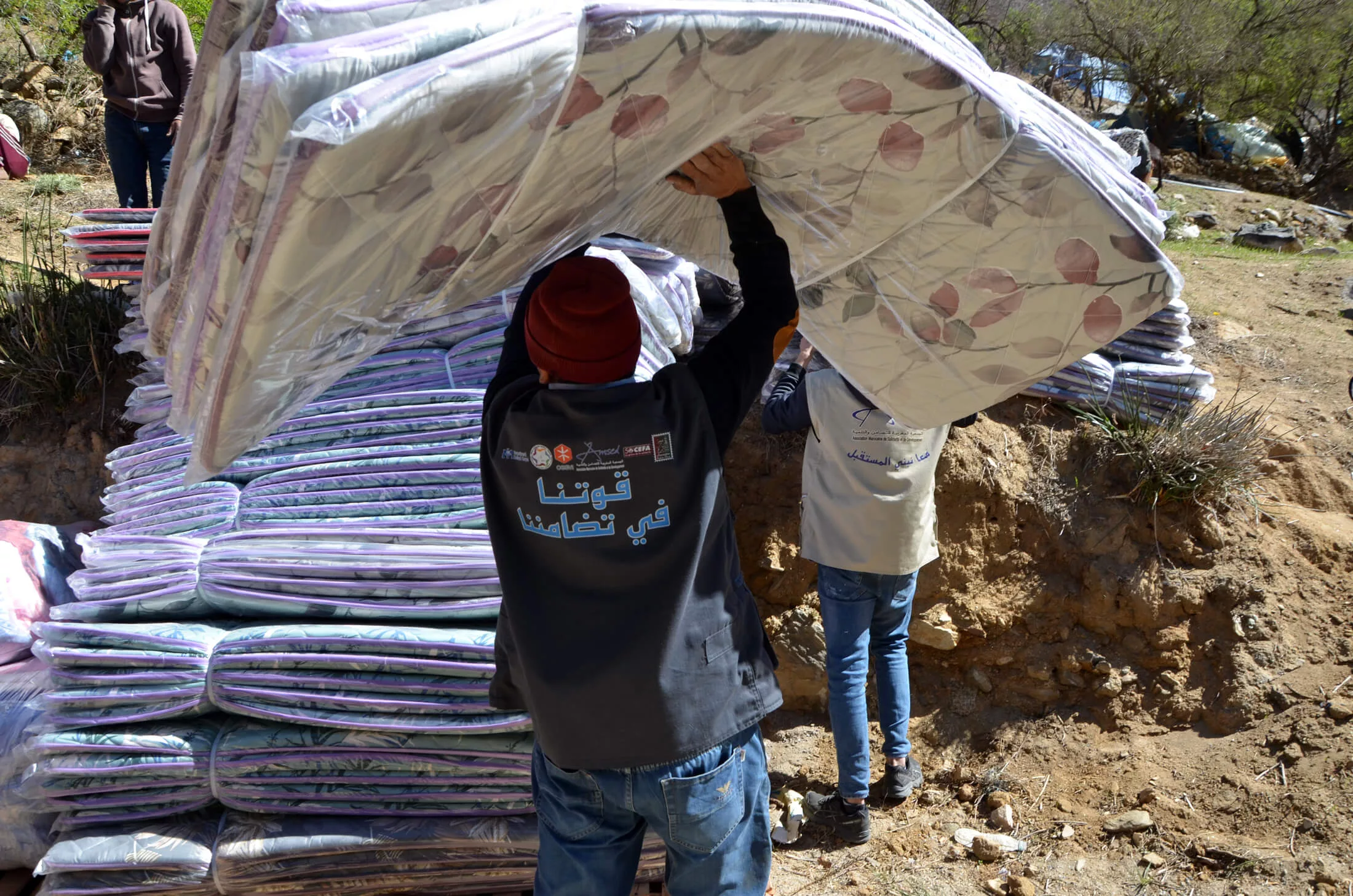
Recovery: Moving Forward
As our emergency response progresses into the recovery phase, we will continue to partner with AMSED and MS2 to ensure continuity of health services. To ensure that earthquake survivors are supported through their recovery, International Medical Corps will:
- distribute additional essential supplies, including 1,500 kits of non-food items, 1,500 winterization kits, 1,500 hygiene kits, 150 solar torches and one solar pumping kit, benefitting as many as 27,000 people;
- continue partnering with Cesvi to provide psychosocial support, protection and recreation services;
- continue managing two child-friendly spaces, where children can gather for recreation and socialization, with activities so far reaching more than 500 children; and
- conduct additional health and hygiene awareness-raising sessions to build resilience for future emergencies.
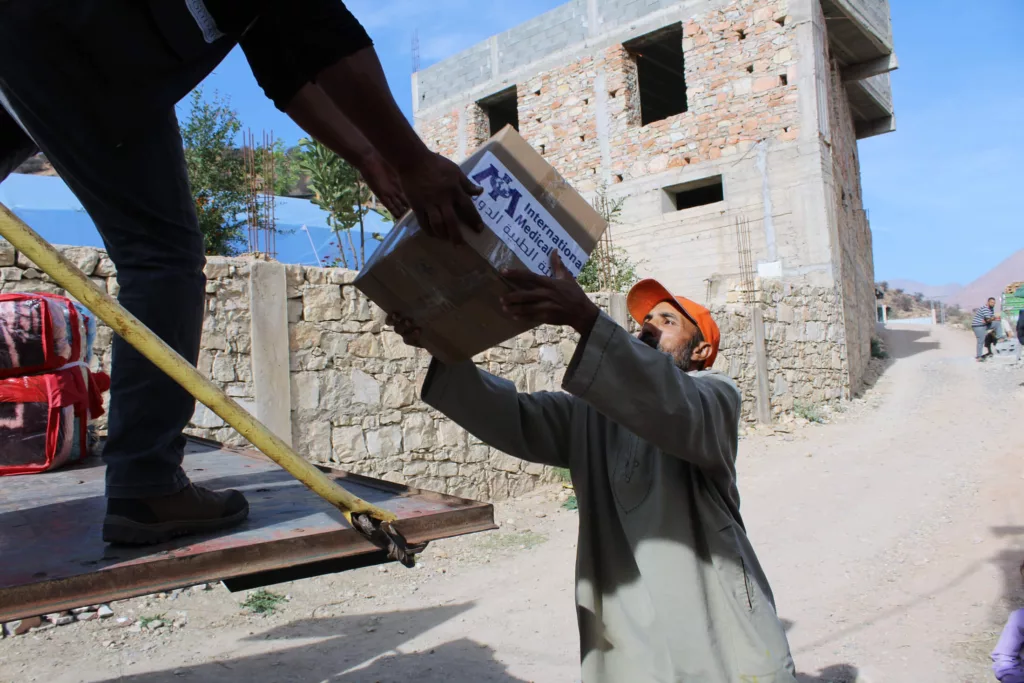
Our Response in Libya
On September 10, Storm Daniel struck northeast Libya, dumping months’ worth of rain in a matter of hours and causing the collapse of two dams upstream from the coastal city of Derna. International Medical Corps, which already had operations in the country, was quickly able to begin providing health services in Derna after the flooding.
Emergency Overview
- 4,540 confirmed deaths
- More than 1.5 million people affected—about 22% of Libya’s population
- More than 44,800 people internally displaced
- 25% of Derna completely submerged and destroyed
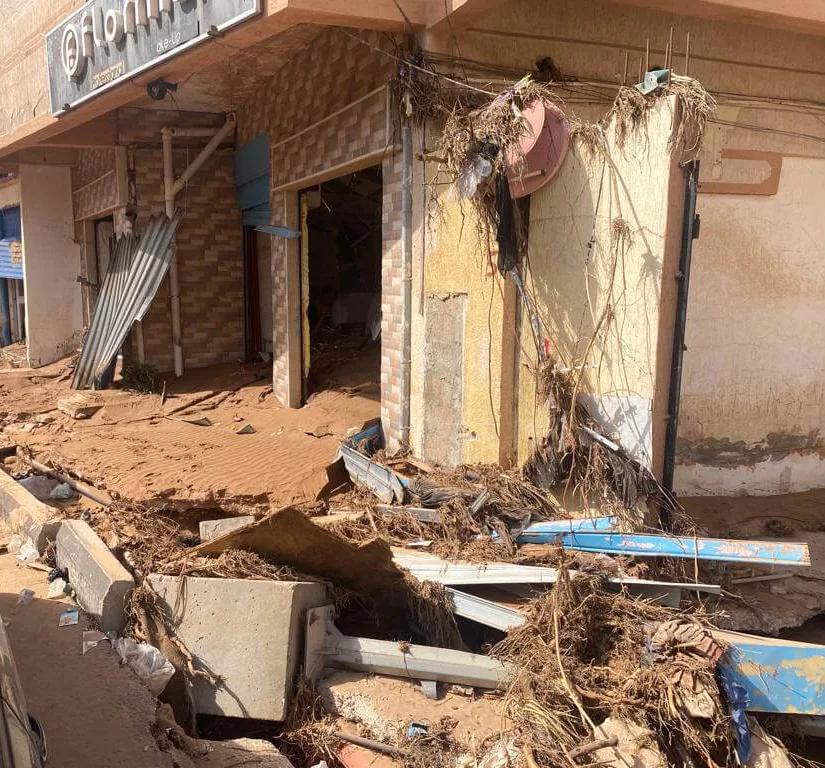
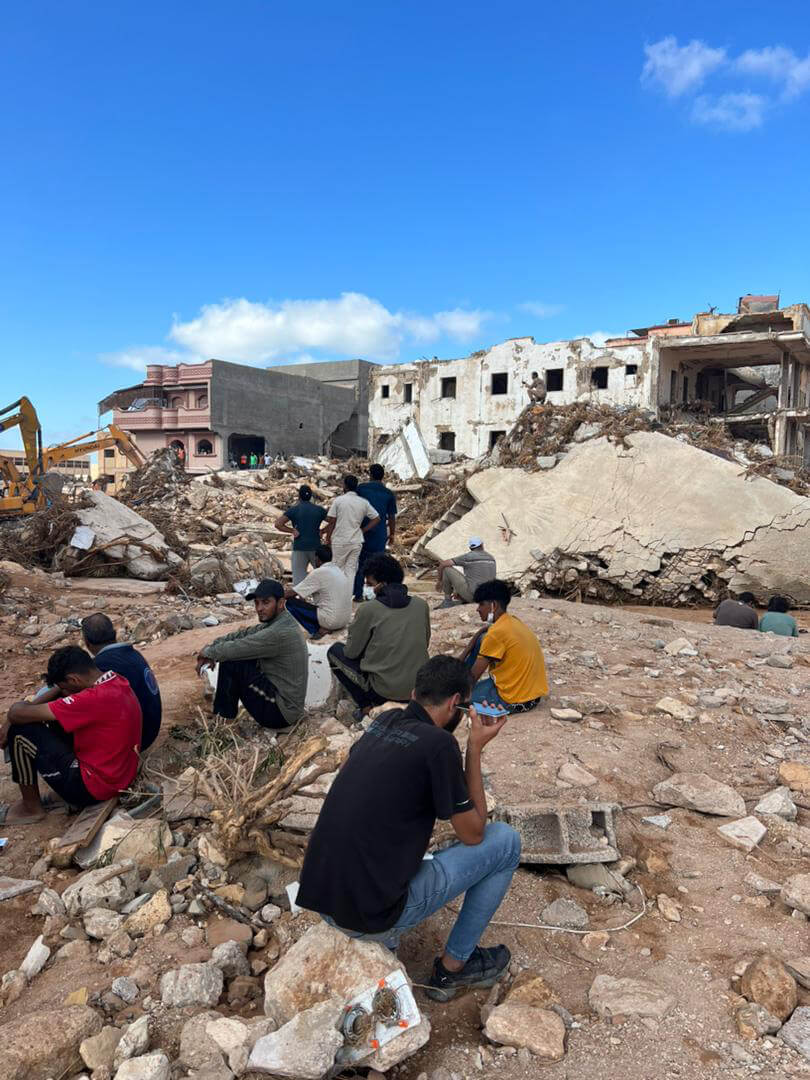
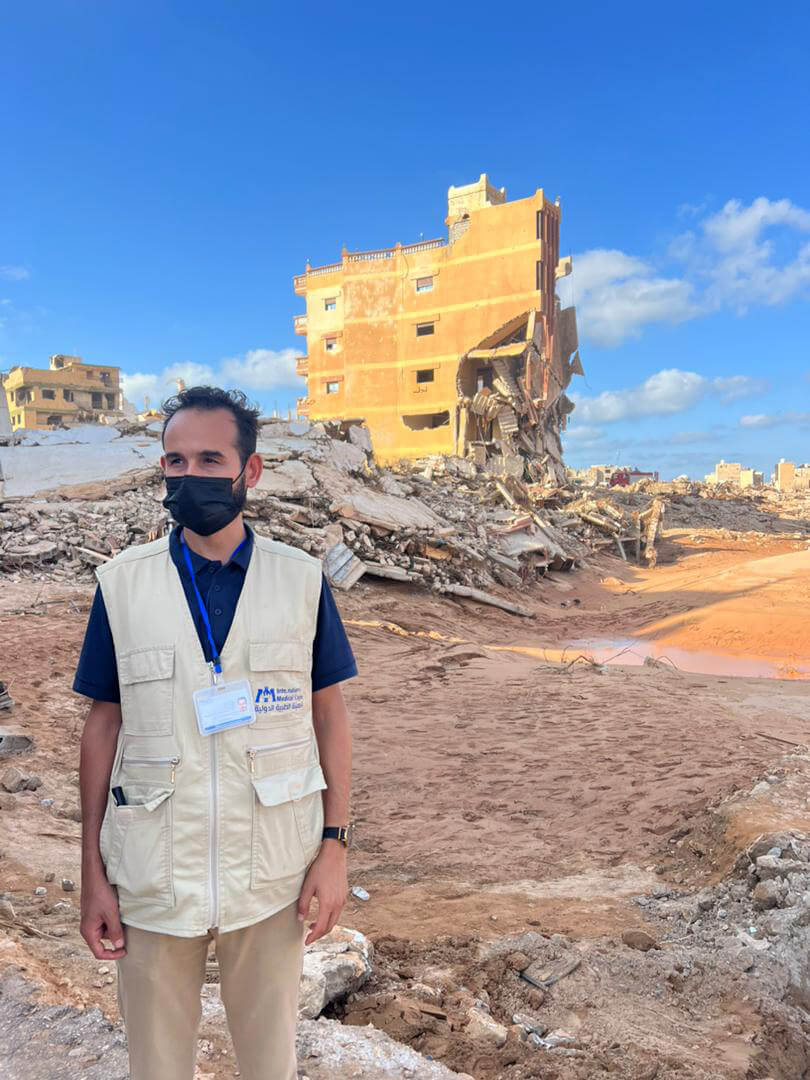
Health
In response to Storm Daniel, International Medical Corps provided primary and emergency health services, along with MHPSS services. Thanks to our supporters, we have:
- deployed 12 emergency medical teams (EMTs) and 60 staff members, bringing lifesaving health services to more than 5,000 IDPs;
- provided 16,880 emergency health consultations;
- conducted 372 MHPSS consultations;
- operated the national mental health hotline, providing consultations to more than 300 people;
- donated 56,070 items of medicines, medical equipment and supplies to six health facilities; and
- reached 3,827 people through health promotion and capacity building activities.
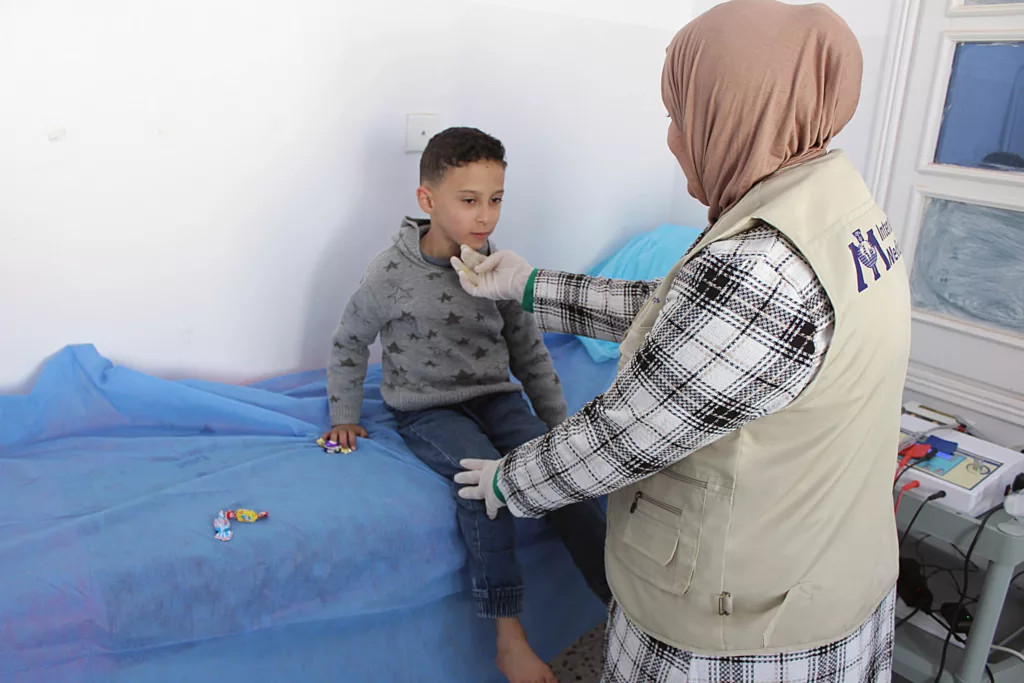
GBV and WASH Services
In the aftermath of the floods, displacement and limited resources left women and girls at increased risk for gender-based violence (GBV). Additionally, damage to water, sanitation and hygiene (WASH) infrastructure put the entire affected area at risk for infectious and waterborne diseases. In response, we have:
- reached 258 women and girls with critical GBV and emotional-support services;
- delivered 2,196,000 liters of clean water to 4,338 people through water trucking;
- distributed 13,800 liters of bottled water, working with local collection companies to ensure proper recycling;
- reached 1,072 people with hygiene awareness-raising sessions; and
- distributed hygiene kits to 1,300 people.
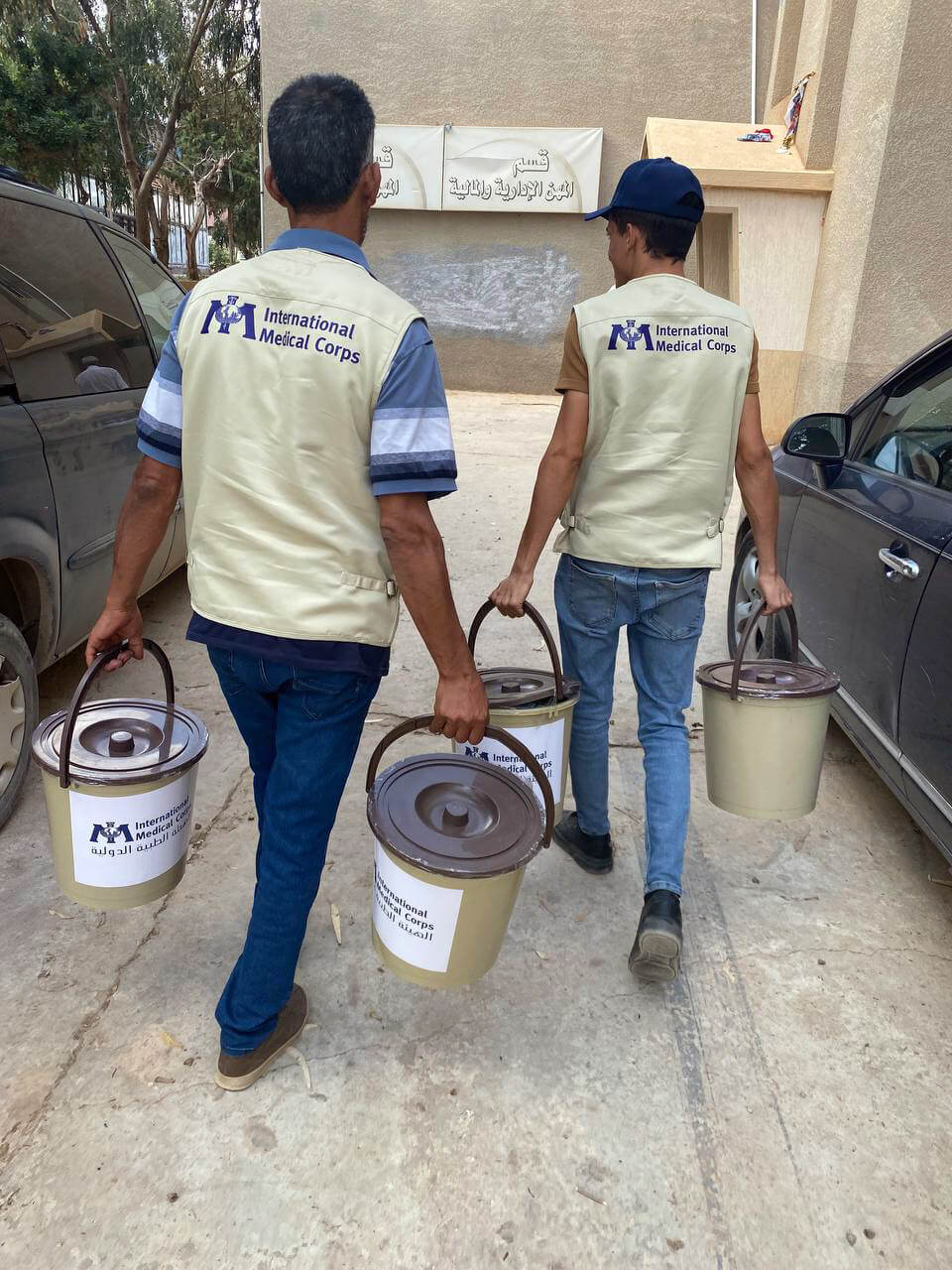
Continuing Emergency Response Efforts: Moving Forward
International Medical Corps will continue our emergency response efforts, ensuring that we reach vulnerable people affected by the floods. International Medical Corps will:
- continue providing essential emergency and primary health services via EMTs—reaching as many as 200 people per day—to address immediate and long-term health needs;
- scale up our MHPSS services, providing more than 100 additional consultations per month; and
- strengthen WASH interventions to improve access to clean water, rehabilitate sanitation infrastructure at health facilities and promote proper hygiene practices for about 600 people per month.
